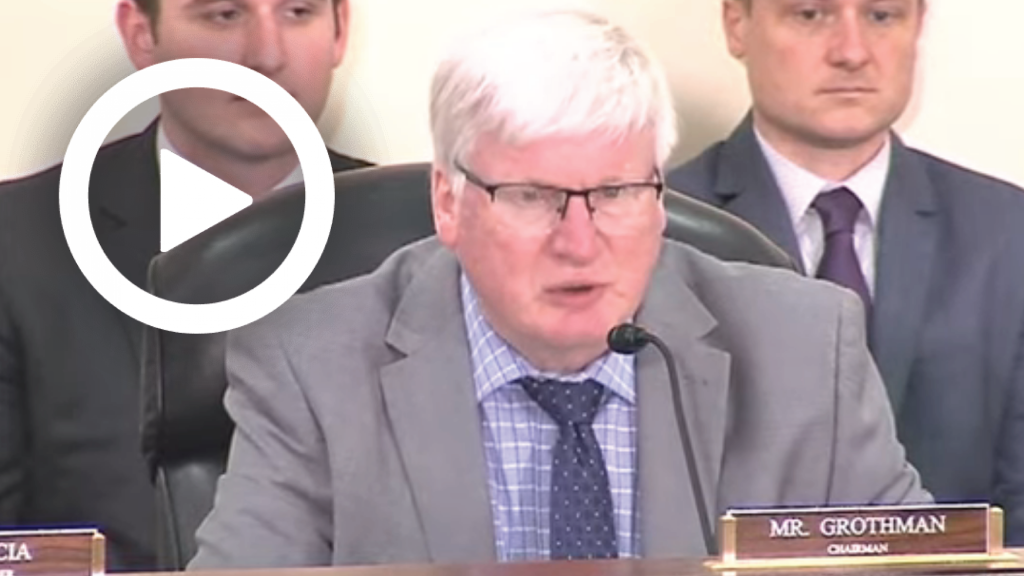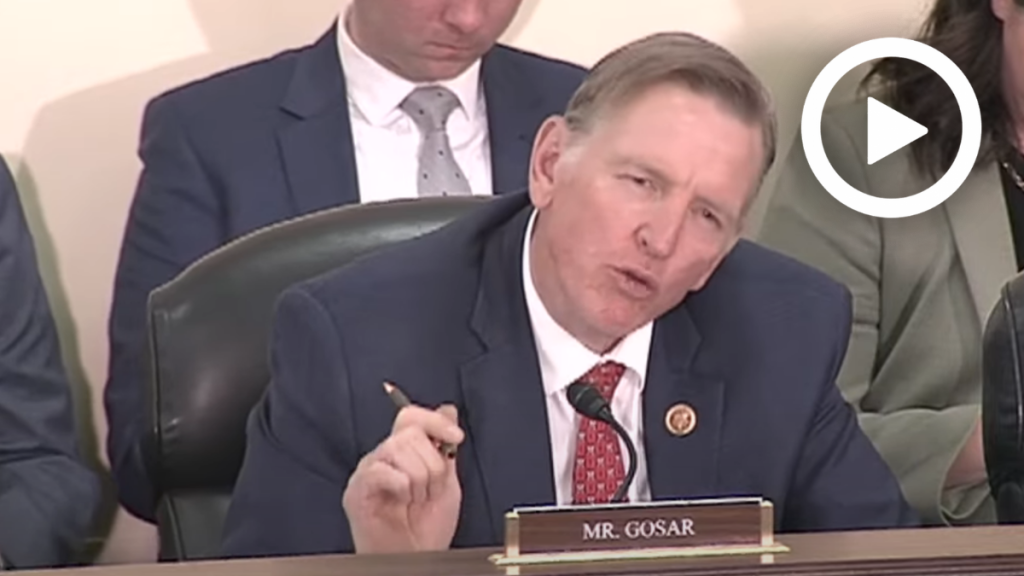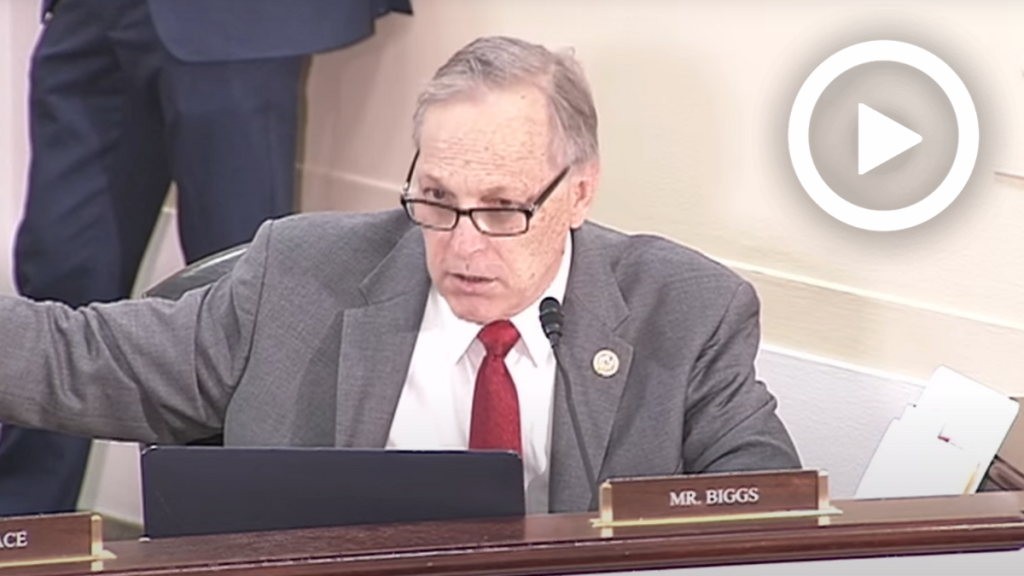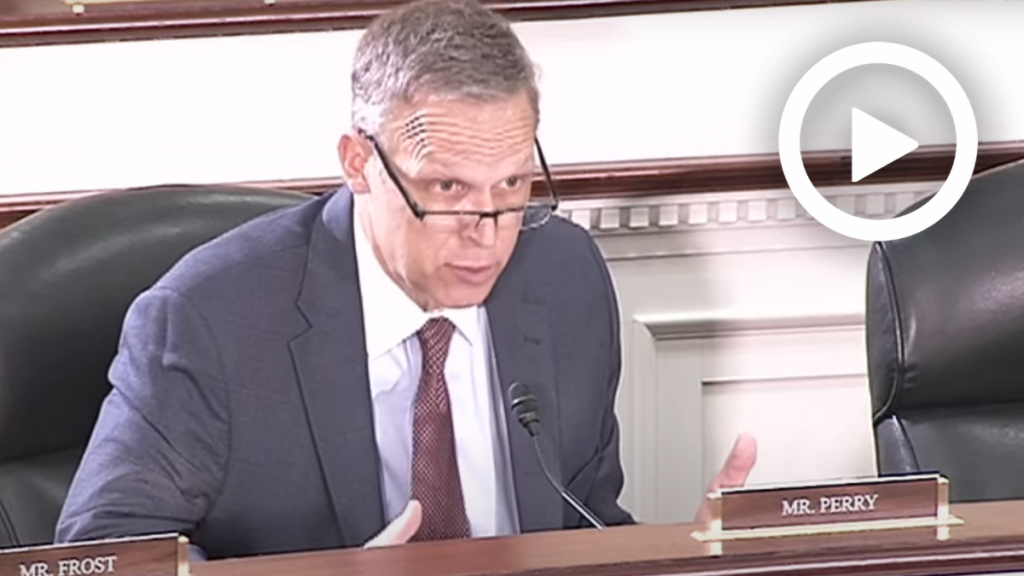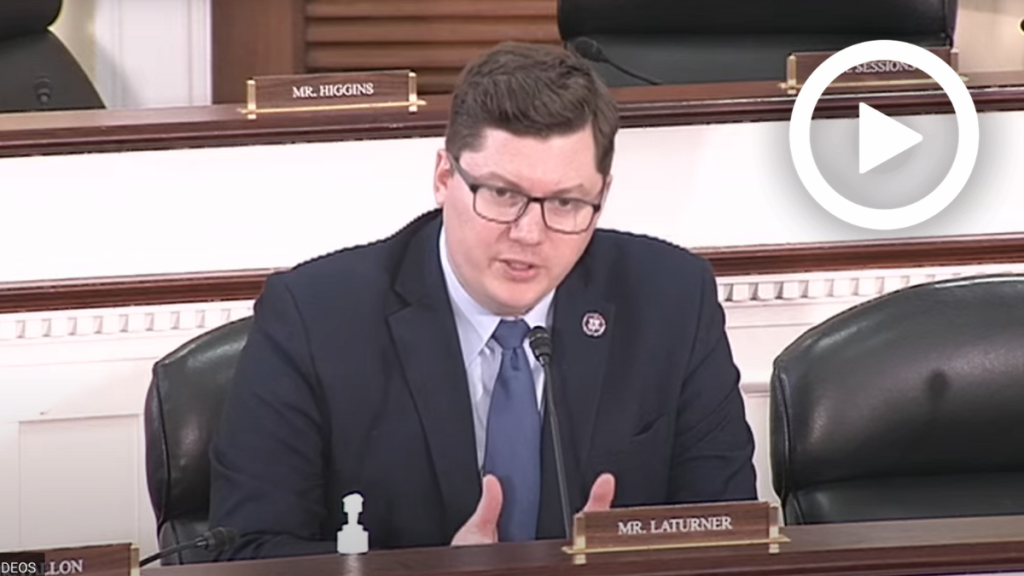Hearing Wrap Up: ORR Director Fails to Answer Questions About 85,000 Lost Unaccompanied Alien Children, Flawed Vetting of Sponsors, and More
WASHINGTON—TheSubcommittee on National Security, the Border, and Foreign Affairs today held a hearing titled “Oversight of the Office of Refugee Resettlement’s Unaccompanied Alien Children Program.” Subcommittee members discussed how unprecedented levels of illegal border crossings, incentivized by the Biden Administration’s policies, have overwhelmed the Department of Health and Human Services’ (HHS) Office of Refugee Resettlement (ORR) and endangered migrant children. Robin Dunn Marcos, Director of ORR, was unable to answer basic questions about HHS’s handling of unaccompanied alien children (UAC), which has prioritized the speedy release of UAC over their safety.
Key Takeaways:
Unprecedented levels of illegal border crossings, incentivized by the Biden Administration’s policies, have overwhelmed ORR.
- “Since President Biden has been in office, there have been over 4.8 million migrant encounters at the Southwest border, not including the roughly 1.3 million gotaways who evaded law enforcement completely and entered our country undetected. This unprecedented national security and humanitarian crisis has overwhelmed federal officials and endangered the well-being of unaccompanied and migrant children as a result,” Rep. Jake LaTurner (R-Kan.) said during the hearing.
- In Fiscal Year 2022, the Department of Homeland Security (DHS) referred nearly 129,000 UAC to HHS compared to roughly 15,000 in Fiscal Year 2020.
ORR’s negligence has endangered UAC.
- The ORR director couldn’t answer questions about reports that show HHS has lost contact with more than 85,000 migrant children in the past two years.
- Two-thirds of all UAC that leave HHS’s care work illegal, full time jobs, often in factories and in hazardous conditions.
- Caseworkers within ORR claim that HHS regularly ignored obvious signs of labor exploitation, such as single sponsors sponsoring multiple UAC, “hot spots” in the country where many UAC sponsors are not the children’s parents, UAC with significant debts, and direct reports of trafficking.
- “We’ve heard stories – I’ve been to the border seven or eight times – and heard the stories directly from people who are federal agents and others who’ve said it is very routine that a person was put with an older person, and then they found out that that was not even their family,” Rep. Pete Sessions (R-Texas) said during the hearing.
- During the hearing, ORR director admitted that only slightly more than a third of UAC’s end up with a parent. “In this fiscal year, I believe 37 percent of children end up with their parent.”
We need to secure our border to end this crisis.
Member Highlights:
ORR is required by law to place UAC in a setting with the best interest of the child, yet Secretary Becerra has pushed for processing and discharging UAC with “assembly line” speed. Director Marcos was not able to answer Subcommittee Chairman Glenn Grothman (R-Wis.)’s questions about ORR’s process for properly screening sponsors.
Rep. Grothman: “Percentage-wise – say if we’ve got a group of 1,000 unaccompanied minors, what percent do you talk to one parent, what percent do you talk to two parents, and what percent do you talk to no parents?”
Director Marcos: “I will have to get back to you on that.”
The ORR director was unable to answer Rep. Paul Gosar (R-Ariz.)’s questions about sponsor verification to ensure people who are applying to be sponsors are fit to care for children.
Rep. Gosar:“What is ORR’s sponsor application rejection rate?”
Director Marcos: “Congressman, I’m not sure what our rejection rate is.”
Director Marcos did not provide an answer to Rep. Andy Biggs (R-Ariz.) when asked why 85,000 unaccompanied children from the border have been reported missing in the past two years.
Rep. Biggs: “I think you’re telling us that you don’t disagree with the 85,000 number of children that we’ve lost contact with. I’m not saying you lost them. I’m saying you’ve lost contact with them. We don’t know where those kids are. Is that fair to say?”
Director Marcos: “We attempt to make a safety and wellbeing call.”
Rep. Biggs continued: “When you made the call, you didn’t get a response. Your letter tells me that you usually make three calls. You got no response in any of those three calls in 85,000 kids. Is that right?”
Rep. Scott Perry (R-Pa.) warned that ORR has weakened its safety protocols by removing vetting checkpoints such as proof of address and background checks.
Rep. Perry: “As I understand it, ORR has a statutory obligation to care for the unaccompanied child. That’s what I’m reading here in your mission.”
Director Marcos: “That is correct.”
Rep. Perry: “If that’s the case, why is it on March 22nd, ORR removed the proof of address requirement and exempted other household members from submitting to a background track or providing identification? How does that aide in the obligation to care?”
Director Marcos: “I think what you are referring to was in the spring of ’21 when there were children backed up, over 4,000, in DHS.”
Rep. Perry: “So, since they’re backed up, we just remove the requirement – lower the standard. That’s essentially what you’re saying right?”
Rep. Perry continued: “On March 31st of 2021, just a couple days later, ORR eliminated the background check requirement for immediate relatives other than a parent or legal guardian. Why would that be? How does that enhance the obligation to care?”
Ms. Marcos: “ORR’s belief is that a child is best with their best or legal guardian.”
Rep. Perry: “How can you be sure it’s their parent?”
The ORR director was not able to provide details to Rep. Perry’s question as to whether she had investigated the termination of whistleblowers for raising red flags with regard to placement of children.
Rep. Perry: “Did you look into the whistleblowers that were listed in the New York Times? Did you look into any of their cases as they were terminated after raising issues?”
Director Marcos: “Congressman, that article just came out. We have a team looking into it.”
Rep. Jake LaTurner (R-Kan.) asked why the Biden Administration only announced a crackdown on child labor practices after publication of a New York Times article instead of taking responsibility for mismanagement at ORR and the unprecedented increase in UAC.
Rep. LaTurner: “Approximately 66 percent of UAC’s work full time jobs, as reported by the New York Times. The Biden Administration only began to take corrective action to rectify the illegal child labor market following the publication of this piece. Was the Biden Administration unaware of this labor market vulnerability or unwilling to address it at the risk of drawing further attention to this issue?”
Director Marcos: “… We have just formalized an agreement and are leaning in to increasing policies and procedures to combat this. This is a whole of government approach.”
READ MORE: Grothman: Biden Open Border Policies Led to Historic Encounters of Unaccompanied Alien Children
CLICK HERE to watch the hearing.
